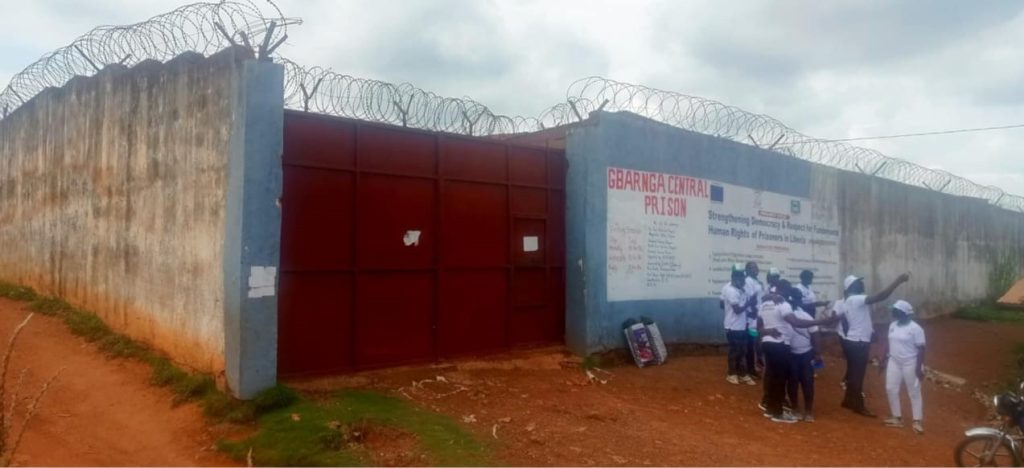The Gbarnga Central Prison in Bong County, Liberia, is grappling with a severe overcrowding crisis, jeopardizing the well-being of inmates and staff alike. Superintendent Gbolomen K. Siakor has voiced grave concerns about the dire situation, highlighting the urgent need for intervention. Built to house 130 inmates, the prison currently confines over 320 individuals, almost triple its capacity. This extreme overcrowding has created an untenable environment, stretching resources thin and posing significant health and safety risks. Cells designed for a specific number of occupants now hold double or more, exacerbating the already precarious conditions. This congestion not only compromises security but also increases the likelihood of disease outbreaks and violence. Superintendent Siakor emphasizes the urgent need for action to mitigate the escalating crisis.
The primary driver of this overcrowding is the significant backlog in the judicial system. Numerous inmates languish in pre-trial detention for extended periods, often exceeding a year, without their cases being heard in court. This bottleneck in the justice system exacerbates the overcrowding issue, as individuals remain incarcerated while awaiting trial. The current inmate population comprises approximately 206 men awaiting trial and 97 convicted men. This prolonged pre-trial detention contributes significantly to the strain on the prison’s resources and infrastructure. Superintendent Siakor emphasizes the need for expedited judicial processes to address this contributing factor to the overcrowding.
The overcrowding has placed immense strain on the prison’s infrastructure, leading to rapid deterioration. Sanitation has become a major challenge, with overwhelmed septic systems struggling to cope with the increased demand. The limited availability of medical supplies further complicates the situation, making it difficult to manage the potential spread of communicable diseases in such cramped quarters. The combination of overcrowding and inadequate sanitation creates a breeding ground for illness, posing a serious threat to the health of both inmates and staff. Superintendent Siakor underscores the urgency of addressing these issues to prevent a full-blown public health crisis.
Superintendent Siakor has issued an urgent appeal to national authorities, the judiciary, and human rights organizations for immediate intervention. She advocates for a multi-pronged approach to alleviate the crisis. First, accelerating judicial processes to reduce the number of pre-trial detainees is crucial. Second, expanding the existing facility or constructing a new prison is necessary to accommodate the growing inmate population. These measures are essential to ensure humane conditions and uphold the basic rights of inmates. Superintendent Siakor emphasizes that this is not merely a prison problem but a human rights issue and a public health concern requiring immediate attention.
The overcrowding crisis at Gbarnga Central Prison represents a serious violation of human rights. Inmates are subjected to inhumane conditions, deprived of adequate space, sanitation, and medical care. The prolonged pre-trial detention, often without legal representation, further compounds the injustice. This situation not only infringes upon the rights of the inmates but also undermines the principles of justice and due process. Addressing this crisis requires a concerted effort from all stakeholders to uphold human rights and ensure a fair and efficient judicial system.
The potential consequences of inaction are dire. The overcrowding, coupled with inadequate sanitation and limited medical resources, creates a breeding ground for disease outbreaks, posing a significant threat to both inmates and staff. Furthermore, the tense and overcrowded environment increases the risk of violence and unrest within the prison. Failure to address this crisis could lead to a humanitarian disaster, further endangering the lives and well-being of those within the prison walls. Superintendent Siakor’s plea for intervention underscores the urgency of the situation and the need for immediate action to avert a potentially catastrophic outcome.














